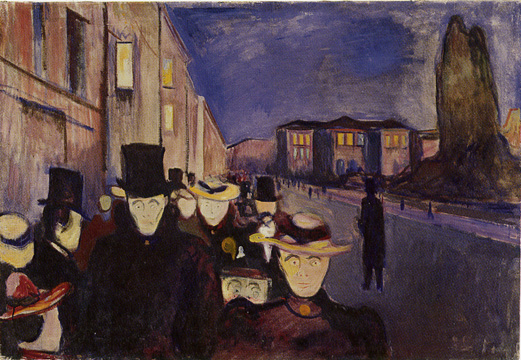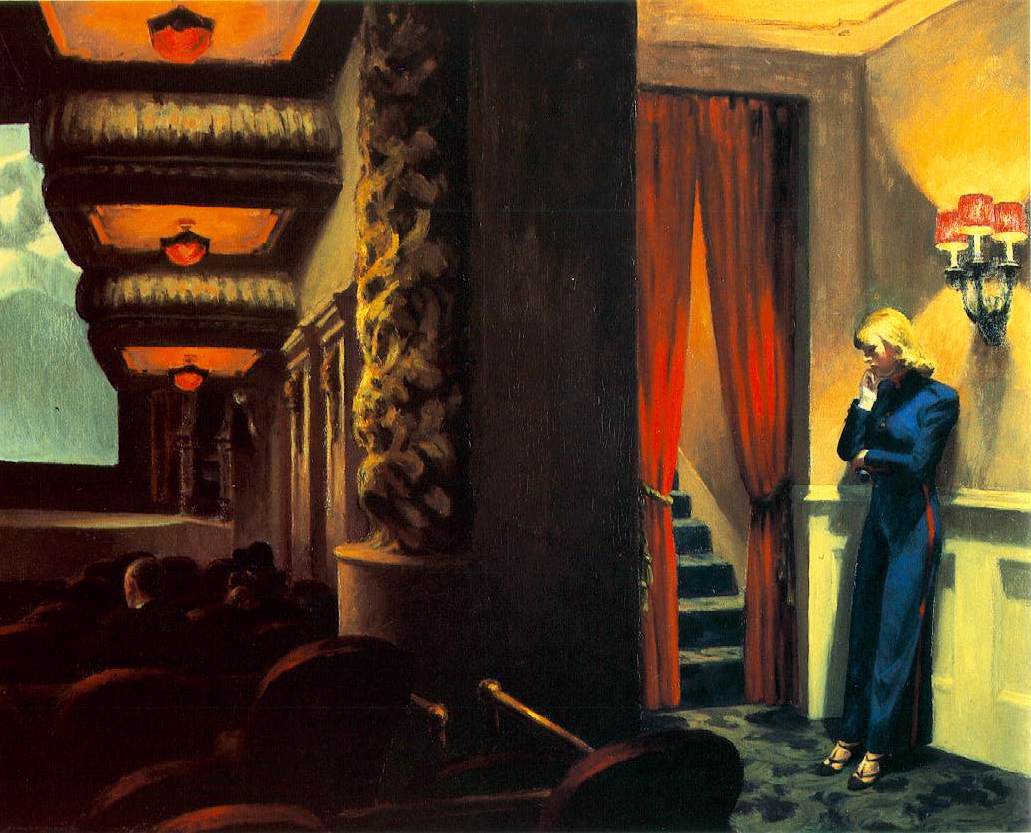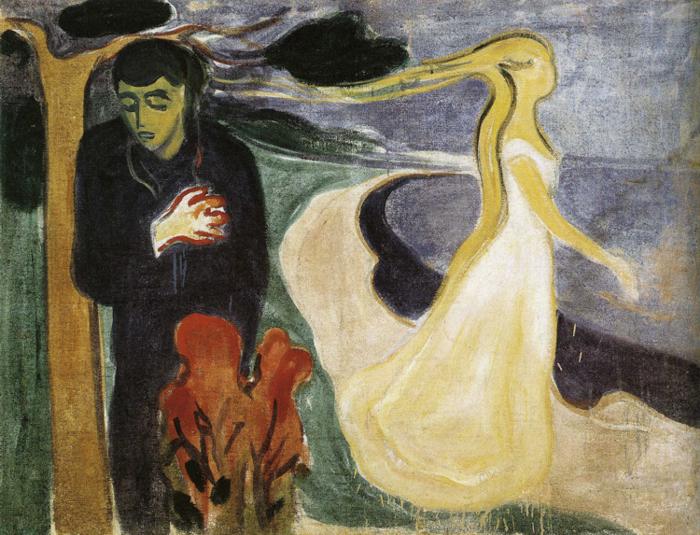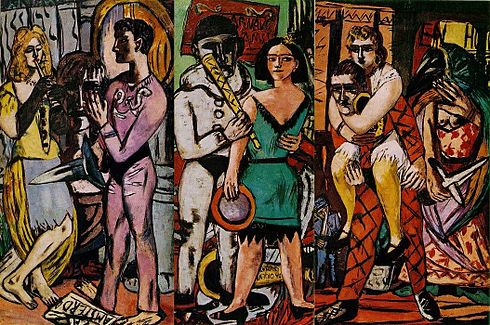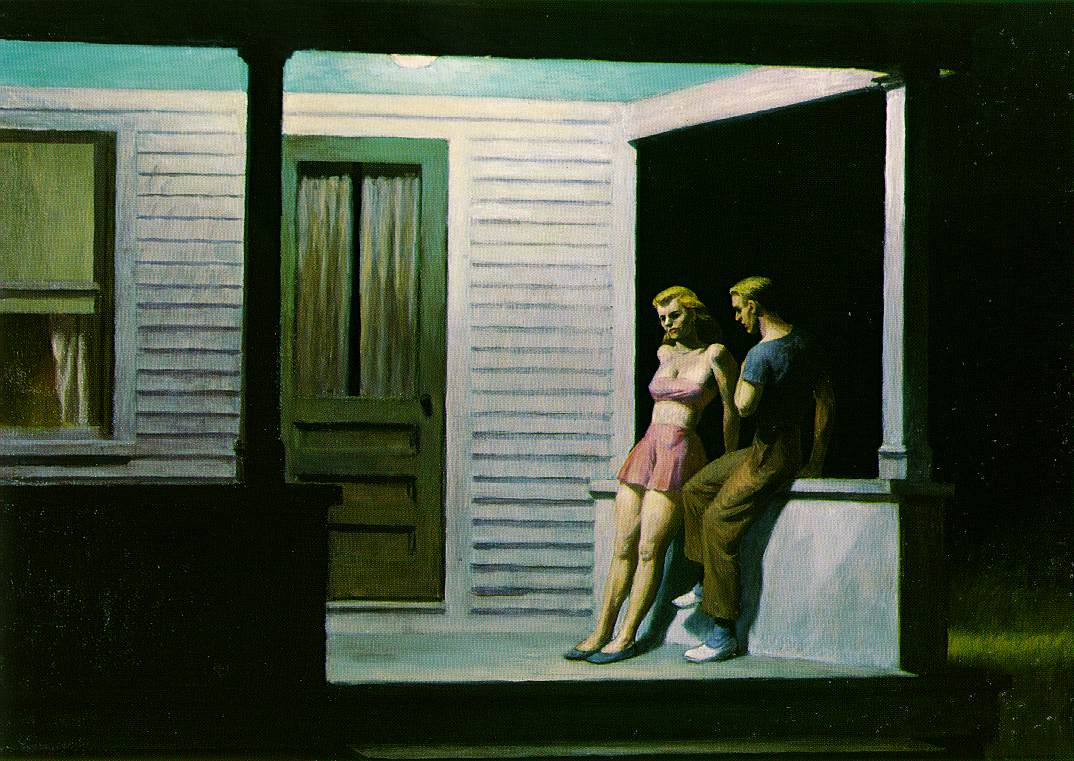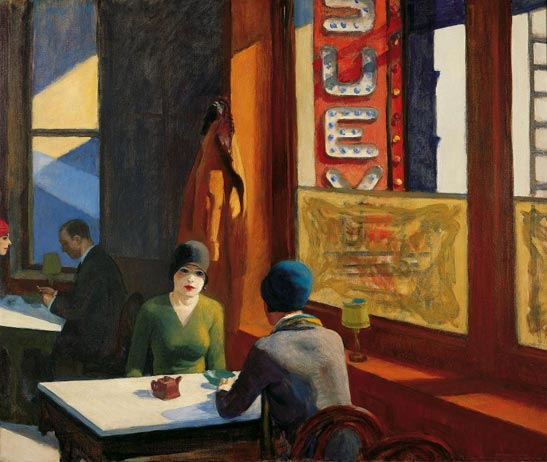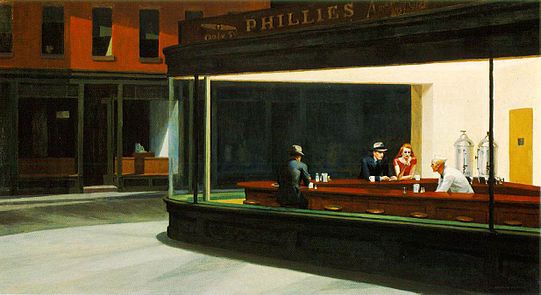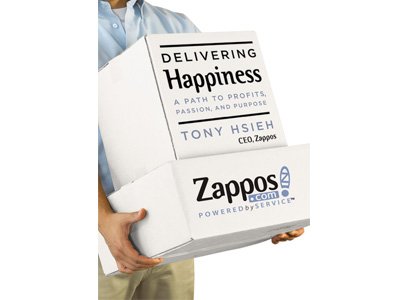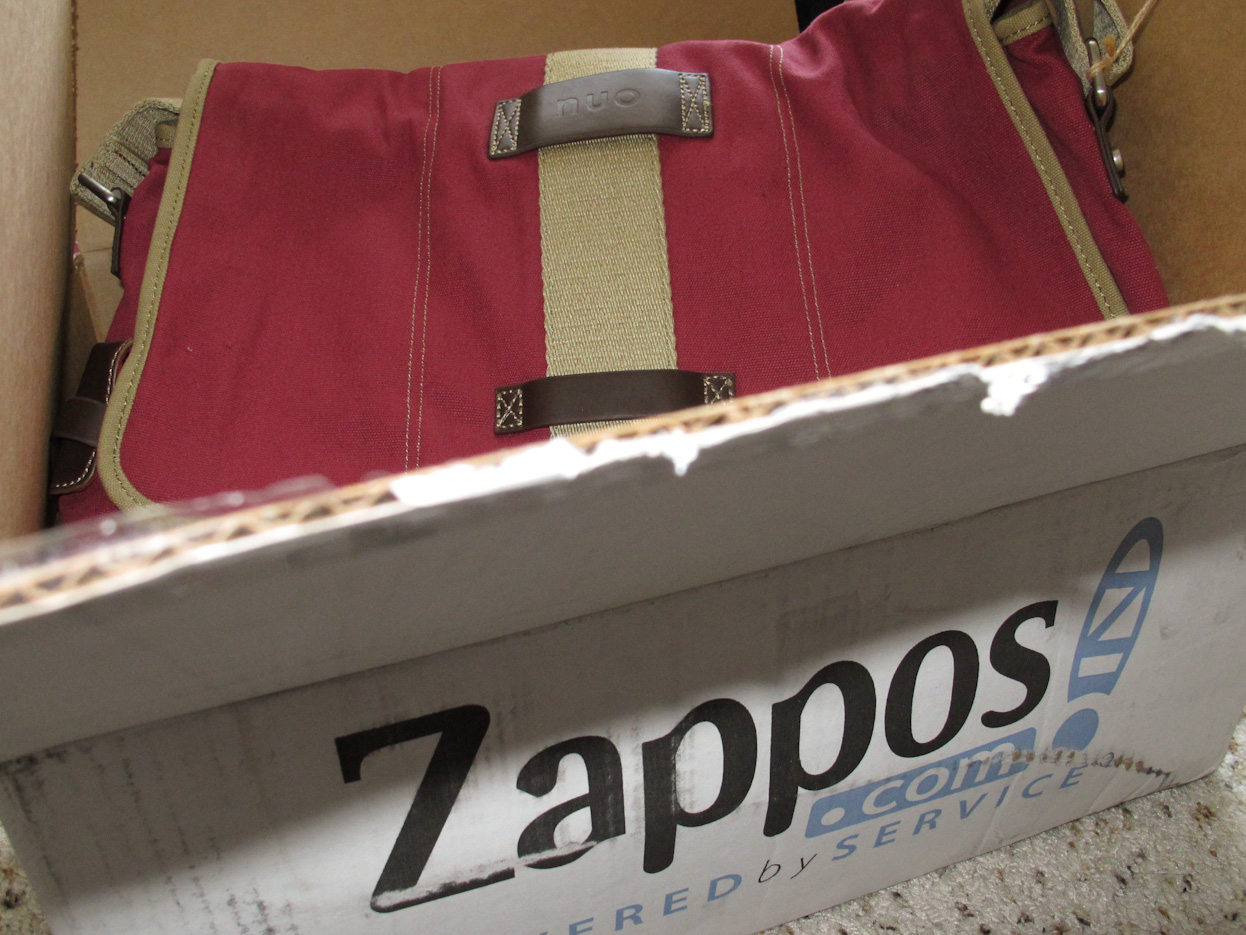Evening on Karl Johan Street – Edvard Munch, 1892
“Watchman, how much longer until morning? When will the night be over?” The watchman replies, “Morning is coming, but night will soon return.” Isaiah 21:11-12
I will write from my heart once again. It might cost me. It usually does. It is sort of like going to battle without armor: There’s always a risk that it could end badly.
This is a difficult subject for me to address, one that I sensed I would have to write eventually. I tried to escape it, but the longer I resisted, the more unproductive I became, spending too much energy just to avoid the task at hand. As the Apostle Paul might acknowledge, it’s hard to kick against the pricks.
So here I am. I will do the best I can to discuss a tough subject in an honest way, but be patient with me as I meander into my points. It’s the only way I know to approach.
It’s a struggle, but I do care more about becoming whole than about building a successful career. Having both would be nice, but if I have to choose I’d prefer to be a better version of myself. I say that until I run into the frustrations that come with faltering in the pursuit. Then I look to a career as a way to compensate for the broken parts, the parts that I can’t seem to fix.
Behind much of what I do, good or ill, is a desire to get close to others, to really connect. More often then I’d like to admit though, even my determined efforts to connect don’t work out, not really, and that hurts.
New York Stories – Edward Hopper, 1939
I spend my day job (technically it’s a night job now that I work the midnight shift) communicating with others, either by phone or email. I am proud that I can help others solve their problems, but sometimes it is another reminder that my life involves lots of communicating and little connection.
Forming meaningful relationships is a challenge for me. By nature I’m guarded—part of that is due to some formative experiences I had growing up—so I have to work hard to undermine that tendency to keep a distance from others. I don’t always succeed.
To try to connect, but to be unable to do so, demoralizes me faster than anything else. Unfulfilled, the desire to connect still shouts for my attention, and that’s when I turn to a cheap substitute. Like porn.
Most of the time, porn is unappealing to me. It is void of any sense of a relationship, it is cheap, and it panders to the baser parts of us. Yet when the real relationships don’t work, porn becomes more of a temptation.
Separation – Edvard Munch, 1896
Don’t get me wrong. I’m not someone who resorts to porn on a daily, or even a weekly, basis. At this point, I give in to its allure maybe once or twice a month, but I want to do better. I want complete “freedom from porn.”
Some of you might recognize that phrase. It comes from Steve Jobs when he was conversing with a Gawker blogger. In response to an inquiry, Steve mentioned a few freedom froms that the iPad allows, including porn. That phrase didn’t sit well with the writer, but Steve defended it, suggesting that porn might be more of a concern if the writer had kids.
The conversation ends with Steve’s now classic quote, “By the way, what have you done that’s so great? Do you create anything, or just criticize others work and belittle their motivations.” Appropriate that a conversation involving porn would end on that note. After all, why go and build something great when you can sit at home and watch porn all day long?
I don’t think it’s a coincidence that the rise of the snarky hipster coincides with the rise of porn. By offering perpetual, easy gratification, porn distracts attention away from what it means to be a person of character, and if there is one defining characteristic of the snarky hipster it is his resounding lack of character.
Carnival – Max Beckmann, 1943
Reading former porn-star Shelley Lubben’s book Truth Behind the Fantasy of Porn: The Greatest Illusion on Earth was an eye-opening look at all the devious things that happen to produce the porn that so many of us consume without a second thought.
Would you feel differently about pornography if you knew that the sexy girl in the video was crying uncontrollably before they started shooting, that the guy who seemed to be living the dream was going to die of an STD in the next few months? It happens. (Learn more about Shelley and her perspectives on porn by visiting www.shelleylubben.com. Be advised that the subject matter is sometimes discussed in a graphic manner, which might not be suitable for all audiences.)
It is worth mentioning too that some online porn sites are linked to other illegal activities like drugs, pirated software, viruses, malware, and even extremist hate groups. Why are these things not as prevalent with other popular internet attractions like cat videos, rainbows and such?
What is the possible connection between a porn site and a hate group? Well, it makes more sense if you allow the notion of evil into the discussion. If evil is too strong a word for you, substitute it for the phrase “a distortion of what is good or true.”
Perhaps you are thinking, well interesting thoughts, “but you did not persuade me, Nicholas. You did not persuade me!” As it happens, those are the exact lines that Idi Amin, played by Forest Whitaker, said to Nicholas Garrigan, played by James McAvoy, in The Last King of Scotland.
Forest Whitaker as Idi Amin in The Last King of Scotland
What can I say? If you disagree with me on my blog, you do run the risk of getting compared to a bloodthirsty dictator, an evil man who looks good only from a distance. On the other hand, I get to assume the part of an inquiring type, as played by the actor who gave us the lovable Mr. Tumnus from The Chronicles of Narnia.
This is one of the few perks of writing this blog, so allow me my moment. Alternatively if you prefer, let me direct your attention to huffingtonpost.com. There you’ll find all kinds of riveting, possibly repackaged, stories and enough behind-the-scenes coverage of Sex in the City to keep you coming back for more!
Kidding aside, if you want to read more of my thoughts about why porn is a problem, check out this post: The Art/Porn Dilemma. The one I’m sharing here is more of a personal take. I just wanted to roughly sketch out some of the issues that I see with porn before explaining why I want to avoid it.
What it comes down to is that I don’t like the person I become when I’m on porn: I have no moral clarity, I’m consumed by desire, and it makes me doubt the existence of any kind of higher meaning or beauty. It is sort of like being stuck in a Pitbull video:
He doesn’t play football, but he touchdowns everywhere. Everywhere? Everywhere! Calle Ocho! 305 Represent! Yeah. You can tell that he really LOVES those ladies by the way he lowers his sunglasses and tilts them just so to show affection.
When the sound and the fury of his flashy ways fade away, there is something unsettling that remains: The love that he sings about is not something lasting or selfless as suggested by the world’s major religions but something disposable and selfish. In other words, it is a sinister inversion of heaven’s greatest gift. A cheap substitute. Pornography.
(For the sake of full disclosure, I am still a little bitter about the loathsome Miami Heat winning the NBA Championship this year, and so I do take umbrage at the city’s esteemed cultural contributions, whether they be arrogant athlete celebs or accomplished philosophers of love like Pitbull.
As a sports fan, I shouldn’t be too bitter though. The NY Giants, the professional team I most cherish, won the Superbowl in the same year. Truly, it was the best of times, it was the worst of times, as they say. On that note, didn’t the Rolling Stones do a song about the source behind Miami’s heat? Something da-da, puzzling you about the nature of some game, da-da. Anyway. Focus Nick, focus.)
Regardless of where he is from, Pitbull and celebs of his caliber are, like pornographers, peddling a cheap imitation in the name of love. I don’t want the imitation. I want the real thing.
Summer Evening – Edward Hopper, 1947
I heard a Middle Eastern woman explain why she chose to wear a hijab to cover her head. She critiqued the modern Western idea that a woman isn’t truly liberated until she flaunts her body in public like merchandise. Then she explained that by wearing a hijab she is setting aside something special, something sacred, only for her husband. That kind of thinking, if not the hijab itself, is kind of sexy, I have to admit.
I want to be porn free so that if I ever get married I can say as much to my wife, that I value our relationship enough not to look elsewhere for sexual gratification. Even if I don’t get married, which is a real possibility at this point, I’d rather turn my attention to more enriching pursuits. It’s old-world thinking, I know, but considering the alternative, that’s not so bad.
Are you surprised that my go-to drink in tumultuous times is an Old Fashioned? You shouldn’t be.
Chop Suey – Edward Hopper, 1929
But. There is always a but, isn’t there? But, there is that broken side of me, that unfulfilled desire to connect with others which sometimes takes a distorted form. I try to keep it in check, but it is there in the background, eyeing each heartache or frustration that comes my way for a chance to gain influence.
It is inherent in my struggles with intimacy, in the mistakes I’ve made in regards to sex, in the resistance that made this post so hard to write.
I don’t know that I can overcome that broken part of me on my own. Remember that scene in Drugstore Cowboy where Matt Dillon’s character is close to recovery and those thugs with grotesque masks come in and beat him down, as if hell’s demons have come forth to reclaim lost territory? Some days it feels sort of like that.
I recently finished the book Broken by William Cope Moyers, son of the esteemed journalist and commentator Bill Moyers. In it he chronicles his struggle to overcome his addiction to crack cocaine. I’ve never done crack, but I do relate to the struggles that addicts face.
The first screenplay I ever wrote, Don’t Stop Believing, was written to offer hope to addicts, something that seemed lacking in the numerous well crafted films on the subject like Drugstore Cowboy or Requiem for a Dream. So, I took particular interest when William described the secret to how he finally stayed sober. He confessed that he could not have remained sober without the help of others.
I don’t believe that was false modesty talking. It came from a humble, penetrating realization that he never could have become the positive influence on society that he has become on his own.
That stuck with me.
It is not an easy thing to ask for help. Aron Ralston has to cut off a part of himself, quite literally, before he can bring himself to ask for help at the end of the film 127 Hours. That’s why it is so remarkable that the characters in Mad Men ask for help from the very first episode. The pilot is peppered with phrases like, “please help me,” “I could use a little help here,” “I want to help,” and “we should help out,” and the notion of helping others is explored in interesting ways from one season to the next.
And so, this little number is dedicated to the Mad Men team and to Matthew Weiner, the showrunner:
I’ll send an SOS to the show.
I’ll send an SOS to the show.
I hope that Weiner gets my
I hope that Weiner gets my
Wait a minute. I’m looking at my notes here, and it seems like the word “help” is actually not to be found in the pilot of Mad Men. Hmm. I guess I was thinking of another show. (For the sake of simplicity, let’s call that other show, whatever it is, the Not Mad Men Show?) How clumsy of me.
Now then, the notes on the Mad Men pilot. Here they are. Let’s see, the guys go up to the 23rd floor where Sterling Cooper is located and then drama ensues, etc, etc. Oh look, a quote: “you’re born alone and you die alone.” No, that’s not it. Here we are. This is what I was thinking of, “What you call love was invented by guys like me to sell nylons.”
Nighthawks – Edward Hopper, 1942
Huh. Reading that again, I realize that it is actually not a quote about helping people. Bizarre.
I guess Mad Men is not really about helping people after all, but the show does have a certain appeal in how it gets to the truth, ugly though it may be, behind the illusions that people put forth, particularly those in the media. I can’t speak for everyone, but I’d rather have ugly truth than phony pleasantries or half-hearted convictions that aren’t backed up by actions.
I mention a show like Mad Men because it does provide hearty philosophical opposition to my position. If love is really just an invented word meant to sell nylons and other such things, then why not indulge in selfish gratifications like porn?
To be clear, I do respect Weiner for the quality of his work and the consistency of his actions. In June’s issue of GQ, the one with Fassbender on the cover, Weiner talks about how he routinely puts his name on scripts that were written by others, because he does much of the rewriting and wants others to know that he had a big part in shaping the final version of the episode. That’s thematically consistent with his show, and it does take some courage to act in such a way that is certain to garner ridicule.
In my experience, the idealists are not so consistent in their actions. Two conclussions can be drawn from that. Either the idealists are lying for the sake of selling an illusion, or perhaps it takes more effort to sustain something good, and perhaps people need help in living up to and preserving their highest ideals.
A few resonating, sour experiences with seeming idealists leave me receptive to the first possibility, but the idealist in me begs me to fight for the second.
I’ve never considered myself to be a good man, but I do admire those types of guys who seem to have a certain grace and dignity about them that defies my cynicism, and there are a few lucky souls who do find a way to make loving relationships last a lifetime.
I would like to be such a man one day; I would like to have such a relationship, but I don’t think I can get there without your help. Will you help me?
Lovers of Vence – Marc Chagall
In case you are wondering, I am displaying copies of artwork based on my understanding of fair use principles. The images are there for educational purposes, to call attention to culturally significant artwork and to illustrate, through discussion, themes that seem to be inherent in that art.
It takes me a little longer to write the kinds of posts I prefer to write, and sometimes my schedule gets complicated, so I can’t promise to have new posts available on a consistent schedule. That’s why I encourage you to sign up by email. You can do that by clicking here.
If you’re following along by email, you’ll know right away when I have a new post waiting for you. It is very easy to unsubscribe, and you won’t receive anything unrelated to my blog.
Lastly, if you appreciate my writing, why not write a comment or share the post with a friend? It would encourage me to keep sharing some of my heart with you.
As always, thanks for reading and God bless.
